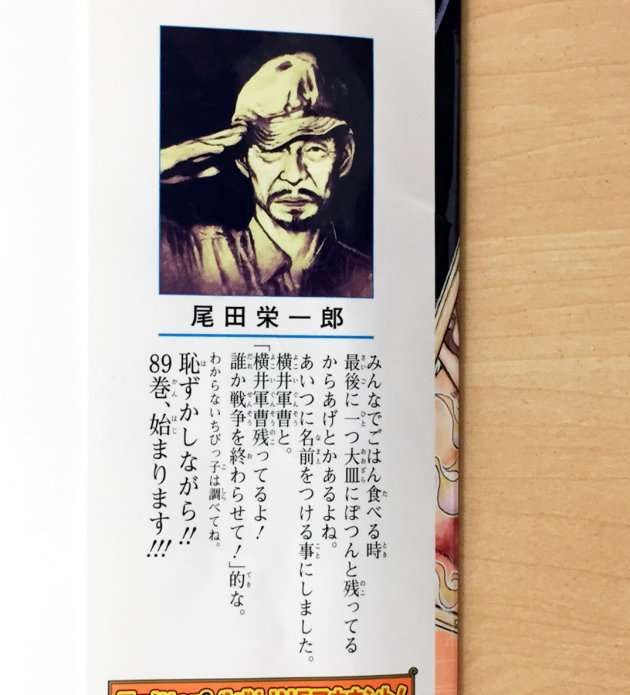
Eiichiro Oda, the renowned creator of the popular manga series One Piece, is no stranger to controversy. Despite his success and acclaim in Japan, Oda's comments in Volume 89 caused a great deal of trouble for both himself and the publisher, Shueisha. The remarks, which were printed on the inner cover flaps typically reserved for light-hearted personal messages or anecdotes from authors, turned out to be in poor taste as they made light of Japan's history, specifically referencing World War II. This ill-conceived attempt at humor overshadowed the entirety of the One Piece book, leading to a public apology from both Oda and Shueisha.
How Oda's World War II Joke Fell Poorly On All Ears
Included on the cover flap is a picture of a worn-out soldier, which introduces the following concept:
"Have you ever experienced that moment when sharing a plate of karaage [fried chicken] with others, and there's always that one leftover piece? Well, I've taken it upon myself to christen it: Sergeant Yokoi."
So I’m like, ‘Sergeant Yokoi is still in the field! Somebody, end the war!’
Little kids who don’t know who I’m talking about, look him up.
With great embarrassment, Volume 89 begins!
The particular Yokoi being referred to here is Shoichi Yokoi, a Japanese soldier who served during World War II under the Imperial Japan. Following his assignment in Guam, he resisted surrendering until he was captured in 1972. In a well-known quote, upon finally returning to Japan years later, Yokoi remarked, "I am deeply embarrassed to come back." Oda evidently believed that time would heal all wounds and that referencing this event in his work on Volume 89 would be a light-hearted jest. However, this joke did not resonate with the wider Japanese audience, leading to a public outcry expressing their disapproval of its appropriateness and sensitivity.
Shueisha issued a public apology on their website on behalf of Oda, concerning an insensitive message in the author's comment section of 'One Piece Volume 89' released on June 4. The editors and author deeply regret their actions and assure you that they will exercise more caution in similar situations in the future.
The digital version of One Piece has removed the offensive message, leaving an empty space.
Regardless of Oda's intentions, referring to Yokoi was a poor choice. In Japan's already delicate relationship with its Imperial past, Yokoi is a controversial figure with both supporters and critics. Some view him as a heroic figure, admired for his resilience and patriotism, while others see him as a symbol of the country's dark history during World War II. Oda's joke put him in a lose-lose situation: even if his remarks weren't interpreted as mocking a man trapped overseas for almost three decades, they would still be seen as insensitive towards wartime circumstances.
Japan's publishers may continue to face challenges due to the lack of seriousness regarding Japan's past military actions and the strong negative reactions they provoke. The mild nature of Oda's joke is evident, especially when compared to the controversy surrounding the light novel [New Life+] Young Again in Another World, which attempted to include a soldier from the Second Sino-Japanese War as the protagonist in an isekai story. The swift backlash resulted in both the novel and the planned anime adaptation being canceled. Oda, however, remains unaffected by this public relations blunder as the continued success of One Piece, including its highly acclaimed live-action adaptation with Netflix, ensures his unblemished reputation.














